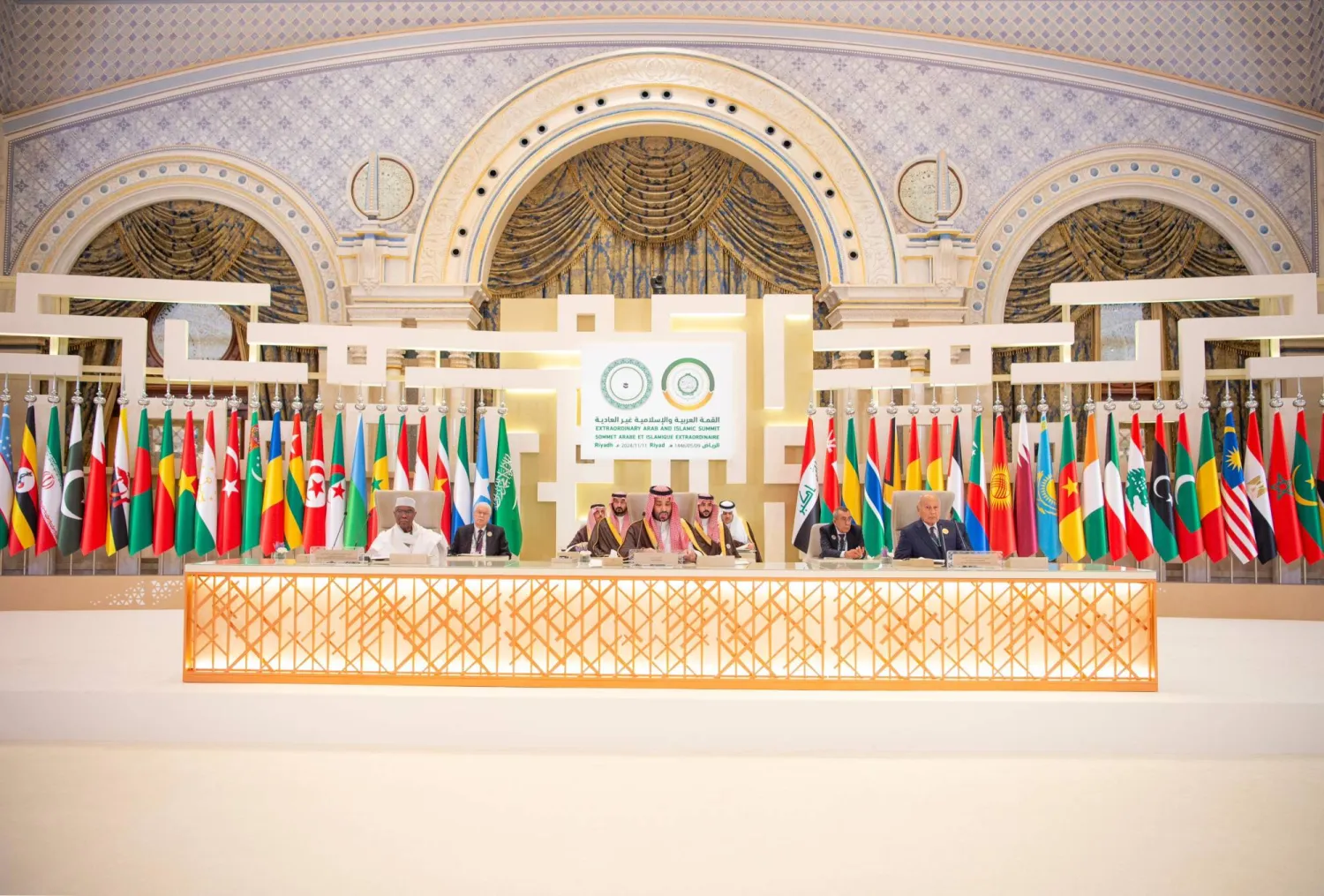Prince Mohammed bin Salman, Saudi Crown Prince and Prime Minister, stressed on Monday the Kingdom’s categorical rejection of Israel’s attacks on Gaza.
He made his remarks while opening the extraordinary Arab-Islamic summit in Riyadh.
Crown Prince Mohammed expressed solidarity with Lebanon and declared his rejection of attempts to undermine the role of the Palestinian Authority and efforts to hinder the role of humanitarian agencies in Gaza.
He condemned attempts to thwart the work of UNRWA in the Palestinian territories, while underscoring the need for the establishment of an independent Palestinian state.
Crown Prince Mohammed also highlighted Saudi Arabia’s launch of an international coalition for supporting the two-state solution to end the Palestinian-Israeli conflict.
He also announced his rejection of attacks on Iranian territories.
Arab and Islamic leaders arrived in Riyadh on Monday to attend the summit.
Speaking at the opening of the event, Egyptian President Abdel Fattah al-Sisi declared: “We condemn the systematic killing of Palestinians in Gaza and we reject their displacement.”
“We must work together to implement the two-state solution,” he urged, while voicing commitment to just and fair peace.
Jordan’s King Abdullah II said: “We must focus our efforts immediately on ending the Israeli siege on Gaza and ending the humanitarian catastrophe.”
“These wars must stop so that we can prevent the region from slipping into a wide-scale conflict,” he added.
“The region is enduring a tragedy that demands immediate action,” he stressed.
Palestinian President Mahmoud Abbas expressed his gratitude to Custodian of the Two Holy Mosques King Salman bin Abdulaziz and Crown Prince Mohammed for supporting the drive for countries to recognize a Palestinian state, noting that it was the foundation for achieving stability and peace.
He demanded the implementation of United Nations Security Council resolution 2735 that would stop the Israeli assault and allow the delivery of humanitarian aid to Gaza
He also called on the international community to impose sanctions on Israel, accusing it of committing “genocide against the Palestinian people for over a year.”
Turkish President Recep Tayyip Erdogan called for “isolating Israel on the international stage should it fail to end its attacks on Gaza and Lebanon.”
He also called for “imposing an arms and trade embargo against it.”
The solution to the Palestinian-Israeli conflict lies in the establishment of an independent Palestinian state, he stressed.
Lebanese caretaker Prime Minister Najib Mikati said his country is “going through an unprecedented historic and fateful crisis.”
“Israel cannot continue with its assault on Lebanon and its people,” he demanded, saying over 3,000 people have been killed and the human losses are devastating.
Mikati urged the gatherers to continue on sending aid to Lebanon.
On the regional level, he said the greatest challenge lies in the Palestinian cause and the suffering of the Palestinian people, echoing demands for the establishment of an independent Palestinian state.









